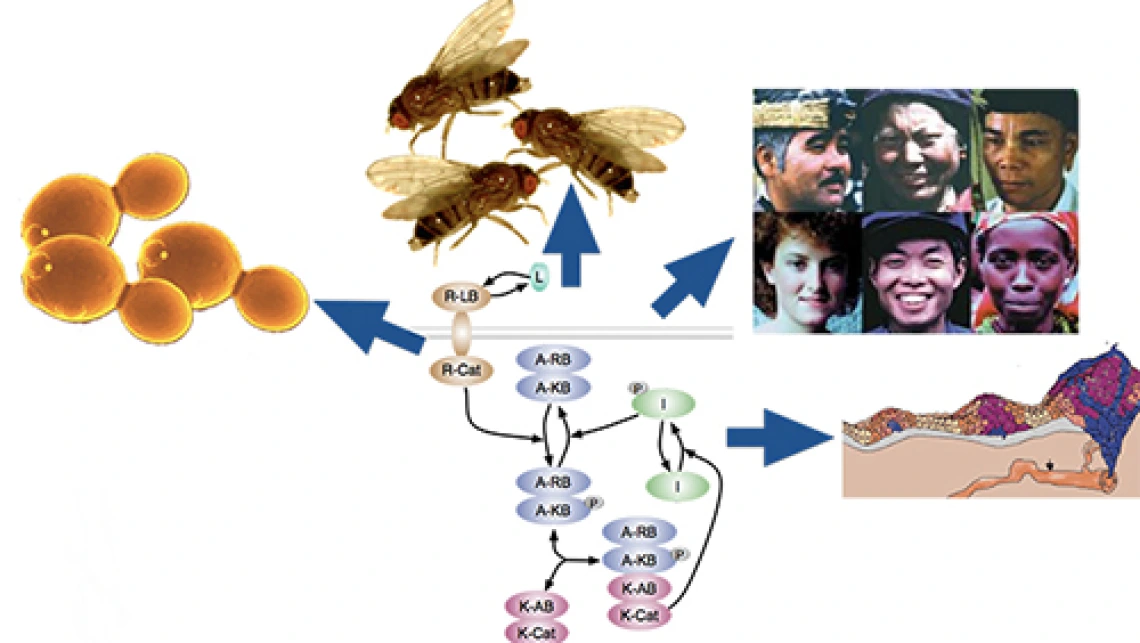
Creating complex plant or animal tissues demands that cells adopt different fates by differentiating from stem cells into distinct cell types - flowers and roots or neurons and muscles. When damaged, mature organs repair using stem cells that recapitulate early developmental pathways. Mutations in development are the root of human disease and disability. Studying development in diverse model systems helps us find cures and treatments for disease. On the other hand, mutations in development also allow for the evolution of new forms - better crop plants, insects with wings, plants that invaded land. Comparing development among species allows us to recreate how developmental systems evolved, and understand major evolutionary trends. The study of differentiation, development and evolution uses integrative and interdisciplinary approaches, including genetics, genomics, bioinformatics, molecular biology, cell biology and modeling.
Faculty with primary research interest: Keith Maggert, Lisa Nagy, Frans Tax
Faculty with secondary research interest: Pascale Charest, Ryan Gutenkunst, Megha Padi, Ingmar Riedel-Kruse, Joyce Schroeder, George Sutphin, Ted Weinert, Claire McWhite, Corin Gray

